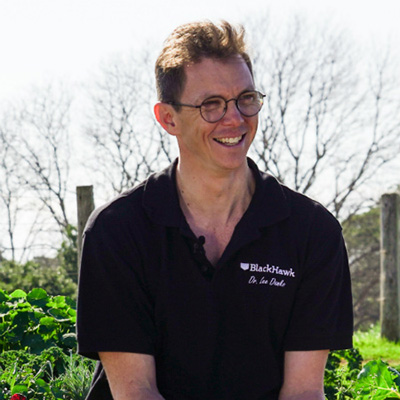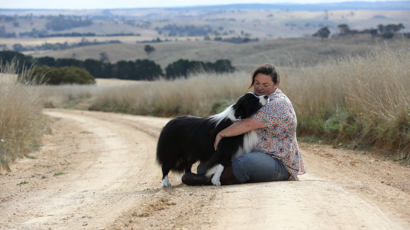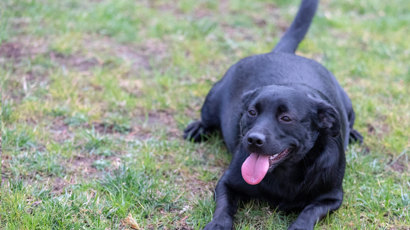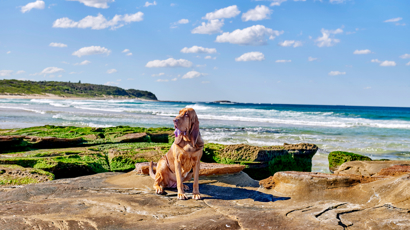Looking After an Older Dog
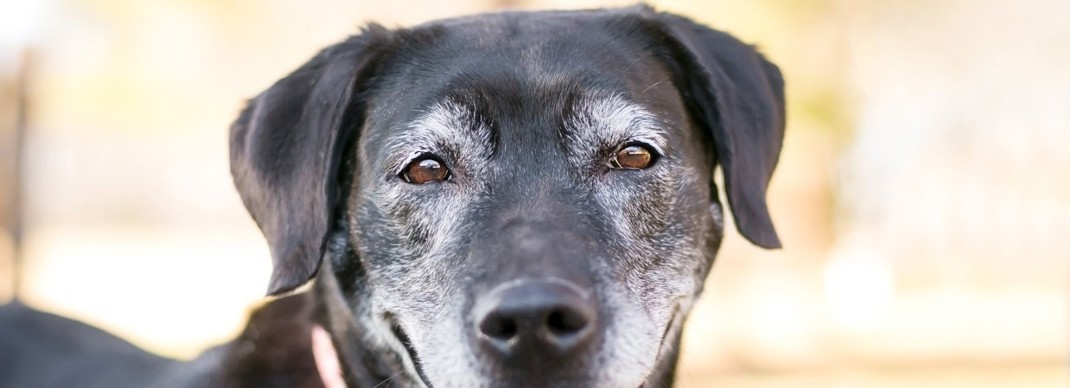
After so many years of loyalty and love from your best mate, your ageing canine deserves the best care you can give them. Beginning with some added TLC, extra patience, and a whole lot more tender love, it’s all about recognising their additional and changing needs as they grow ‘long in the tooth.’
After all, your good old boy is changing. They may need more time to sleep, wake up, finish dinner or do their business. You’re sure to discover it really is the little things that can make life a lot easier, from tailoring their meals, to providing plenty of warm, comfy places to sleep.
Exercise: No new tricks for the old dog, thanks.
You may be finding your pooch just isn’t doing the same active ball chasing in the park, as they used to. This is normal, as a decline in activity is all a part of getting older. But it doesn’t mean you should stop the exercise altogether, because if they don’t use their muscles then they will lose mass and tone, making it even tougher to move about. You’ll simply want to adjust the frequency and intensity of their exercise.
Try replacing long walks with shorter but more frequent ones, or a good doggy-paddling session on a warm day.
These can help keep them in good shape, get their joints and muscles moving and the weight under control.
If your pooch is having a hard time working out due to arthritis or plain old stiffness, here are some things you can do to make their movements more comfortable:
- Get a ramp to help them get on and off furniture; up and down stairs; or into the car. This will reduce the intense jolts and jarring of joints, while still allowing everyday activities.
- Protect their elbows and hips (the points which come in contact with the floor when sleeping) with well-padded bedding.
- Elevate their food and water bowls to make eating and drinking easier, particularly if they have a stiff neck or back.
- Speak to your vet about any medication or supplements that they’d benefit from.
- Give them a harness to wear, instead of a collar, which usually puts less pressure on their neck.
Dental Health for Older Dogs
Over time, if dog’s teeth aren’t cleaned regularly, plaque and tartar buildup can cause gum disease, tooth deterioration, infection and tooth loss. As a result, your poor pooch may experience pain and difficulty eating. Worse yet, dental disease can spread to other organs of their body, making your pet seriously sick.Some ways to protect your dog’s teeth:
- Regular teeth brushing at home
- Well made and proven-effective dental chew treats
- Feeding a vet-prescribed dental diet
- Yearly dental check-ups by a veterinarian, which may lead to a dental scale and polish
Some fortunate dogs just end up with healthy teeth without too much work. Others, especially small breeds, need regular dental cleaning and check-ups to maintain good dental health.
Rather than gambling with their teeth health, we suggest maintaining a good dental routine at home, and getting the entire family involved in the process.
Maintaining a Healthy Diet
Your pooch may have a lot of dog years under their collar, but a healthy diet can give them even more. More specifically, we’re talking about: heaps of energy; a glossy coat; a healthy weight and healthy poos (as in not bulky or runny).
So, what makes a nutritious meal for your older pooch?
That would be a nutritious and specific balance of nutrients that dogs need, like protein, carbohydrates, fats, vitamins and minerals. Feeding a high quality, premium kibble or wet dog food diet is the easiest way to ensure that they’re getting the right things. Specially formulated pet foods are developed by vets and nutritionists with their long-term health and wellbeing in mind. Taking diet-creation into your own hands and making their meals yourself can be doing more damage than good.
We suggest that you always check your dog’s food labels to ensure:
- The food is ‘complete and balanced’ for maintenance.
- The ingredients panel is clear, understandable and contains a nice blend of protein, fat and carbohydrate/fibre-based ingredients.
Wet or Dry Foods?
Wet and dry dog foods both have benefits your old boy can dig in to:
Premium dry foods are not only packed with high-quality ingredients your ageing dog will love, but they’re higher in energy, meaning that they’re more economical to feed and good for keeping the weight on in those ‘geriatric’ yearsWet foods add a bit of variety to your old dog’s diet, and are grrrreat for mixing in to their premium dry food if they aren’t too keen on it. Let’s face it, some senior dogs can be a bit fussy about what they eat. So, including both wet and dry food on his daily menu can be a positive move to help them eat well.
How Much to Feed an Older Dog
We know that our older pups can get fussy about food, and as a result can lose weight. But of course the opposite can happen, too. Because older dogs are usually doing less exercise, they can gain weight, which can bring on or worsen conditions like arthritis. How do we lick these problems?
Keep in mind that it’s the how much (in total) they eat that matters, not how often. So, go ahead and feed them once, twice, three times a day. Just make sure you’re following the guidelines on the bags according to the weight of your pet, and adjust the amount if you notice they’re losing or gaining kilos.
Good pet food companies have Customer Services teams to help you tweak feeding amounts, and your vets can give you advice too, based on your dogs overall body condition.
More on Weight
So now that we’ve covered food, how do we know if your older dog is at a healthy weight?
- Your dog should have a waist, or tuck-in at the ribs.
- You should be able to feel his ribs through a thin layer of body covering.
Evidence tells us that trim dogs are happier and have fewer health problems than overweight ones. So if you’re concerned about their shape or weight then feel free to try the Black Hawk DogCheck tool, and speak with your vet to help work out your older dog’s ideal weight.
If your pooch has health issues, it’s best to ask your vet about ideal meals for your old friend.
